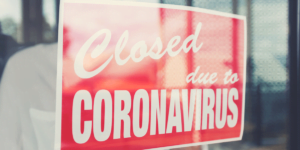 If you were injured in a car accident, you may be required to give a recorded statement at some point in the claims process. However, we recommend that you talk to a licensed attorney first to determine if it is necessary to give such a statement and if so, what it should include.
If you were injured in a car accident, you may be required to give a recorded statement at some point in the claims process. However, we recommend that you talk to a licensed attorney first to determine if it is necessary to give such a statement and if so, what it should include.
Our knowledgeable South Bend car accident lawyers at Pfeifer, Morgan & Stesiak are dedicated to protecting the interests of our clients. If you are considering pursuing a personal injury claim, we invite you to take advantage of our free, no-obligation consultation. It is an opportunity to discuss how a personal injury claim works and what you should and should not say during a recorded statement.
Dangers of Giving Recorded Statements
Insurance adjusters often try to convince accident victims to give recorded statements soon after the crash while they are still recovering and vulnerable. If an insurer can catch someone off-guard, it may be easier to convince him or her to give a statement.
However, you are not required to give a recorded statement. The insurer’s goal in asking for a statement is to try to get you to say something that will diminish the value of your claim or damage your credibility.
Besides asking for a recorded statement, the insurance adjuster may also use other tactics to try to get information from you, including:
- Contacting you within hours of the accident while you are in pain, on medication or still in shock
- Pretending to be concerned about your injuries and influencing you to say you are “fine” when you are still recovering
- Getting you to minimize your injuries or talk about the severity of your injuries before you understand the full extent of the damage
- Tricking you into saying something that could reduce the at-fault party’s liability
- Getting you to make statements that could contradict evidence that may be collected in the future
- Getting you to give a statement before you have a chance to consult with legal counsel
What to Say to the Insurance Company If They Call You
If an insurance adjuster calls you for a recorded statement or any other purpose, you can refer him or her to your lawyer, or you can simply say that you want to seek legal advice first. Most personal injury lawyers will not recommend giving a recorded statement without talking to a lawyer first.
If you give a recorded statement, here are some general guidelines:
- Do not volunteer information, such as saying that the accident occurred at a bad time.
- Avoid guessing or lying. It is fine to say “I don’t know” or “I don’t remember” if this statement is true.
- Avoid discussing your injuries. Let your personal injury lawyer provide documentation of the full extent of your injuries.
- Be consistent. The insurance adjuster may keep asking you the same questions, but in different ways to try to get you to answer differently. Be sure your answers are the same.
- Stick to the facts and only answer the questions asked.
What Should a Recorded Statement Include?
Before giving a recorded statement, you should prepare an outline of the facts of your claim. This will give you something to look at to help you answer clearly. It also gives your lawyer an opportunity to review your statement and advise you before you provide the recording.
Some of the details you will likely be required to provide include:
- The time of the accident
- What you were doing immediately before the crash
- What direction you were traveling in
- What you saw right before the accident
- The injuries you sustained
- Anything the at-fault party said at the time of the crash
- The effect the accident has had on your life
- Whether any witnesses were present at the scene of the collision
- Whether police investigated the accident
- A description of the medical treatment you received
- Any known follow-up medical care you are expecting
Contact Pfeifer, Morgan & Stesiak for Help
If you have already been contacted by an insurance company to give a statement, you can contact one of our experienced South Bend personal injury lawyers at Pfeifer, Morgan & Stesiak for help. We know the tricks that insurance companies use to diminish the value of an accident claim.
If hired to represent you, we are prepared handle communications with the insurance company and negotiate fair compensation on your behalf.
Reach us by phone at (574) 444-0741 or fill out a Free Case Evaluation form.












